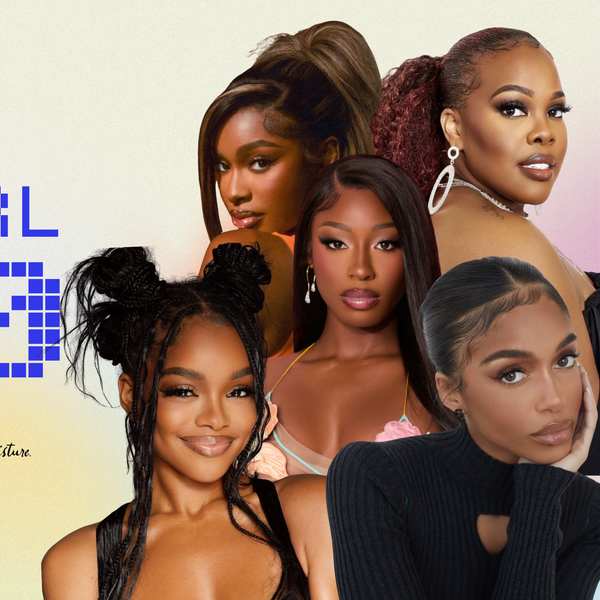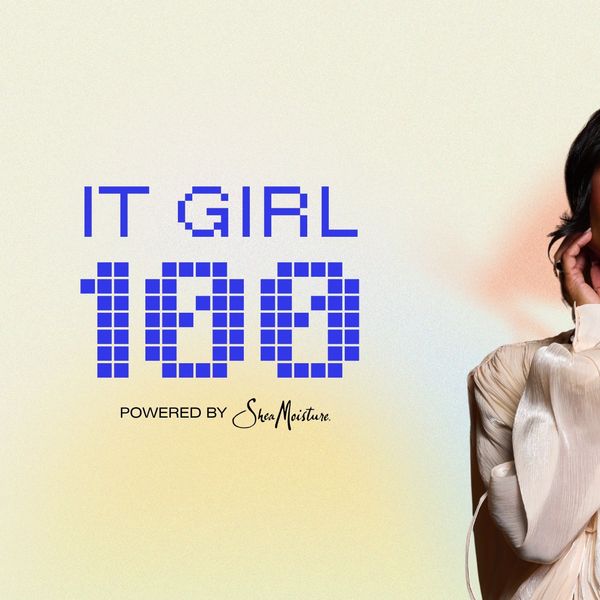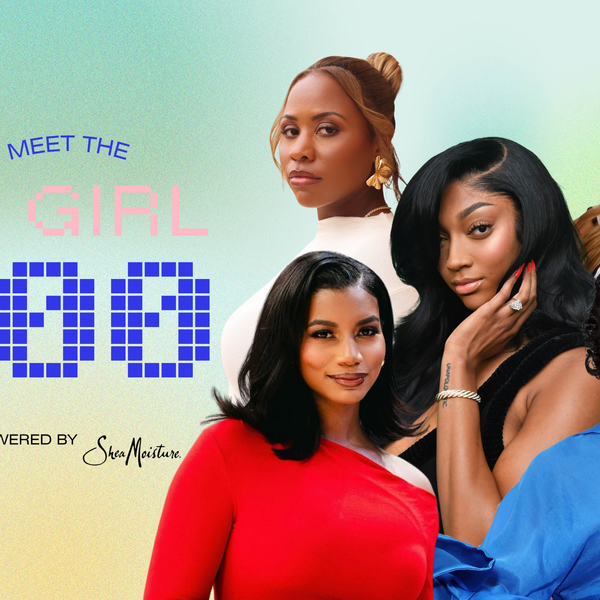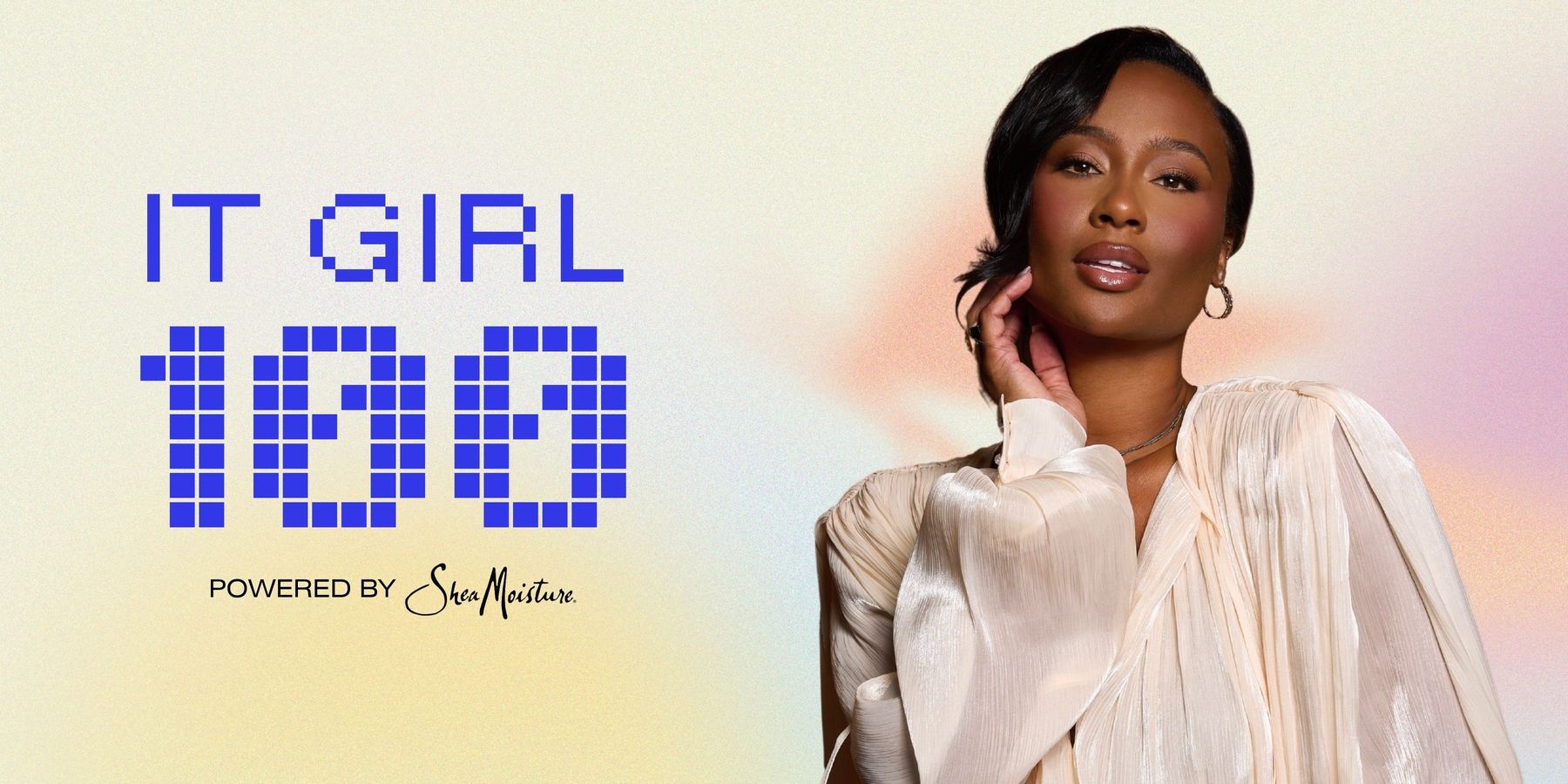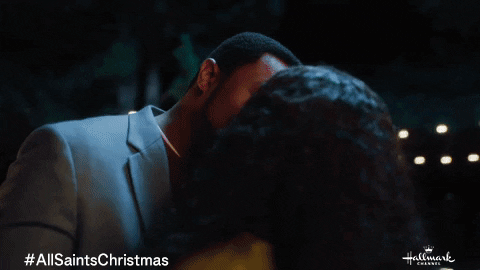
Have you ever seen a movie that captures the nuances and complexities of Black love in such an authentic and captivating manner that you immediately feel compelled to add it to your favorites list? Witnessing the portrayal of our culture in a way that authentically represents our experiences on the big screen creates a sense of warmth and resonance deep within me.
As we cozy up in our pajamas and spend more time on the sofa, we can’t help but think about the go-to classics that get the job done every time. Like the way Darius looked at Nina or the way Sidney looked out for Dre, the Black love stories just feel good for the soul.
Keep reading for our top films that offer unique takes on love, culture, and connection, reflecting diverse Black experiences across time, place, and circumstance.
1.Love & Basketball (2000)
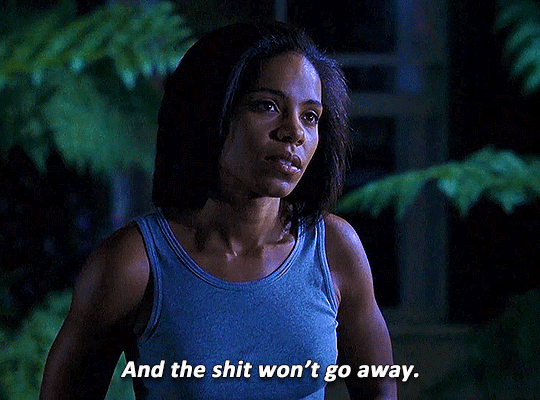
This classic tells the story of childhood friends and basketball enthusiasts Monica and Quincy, whose relationship evolves into romance as they pursue professional sports careers. Their journey reflects the highs and lows of balancing love with ambition. It’s a film that resonates with anyone who’s ever had to choose between passion and love. It’s low-key every millennial Black girl’s favorite movie.
2.Brown Sugar (2002)
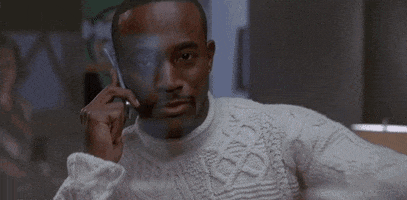
Sidney and Dre share a deep-rooted love for hip-hop and each other, but neither realizes it until life's twists pull them apart. This heartfelt movie explores how passion for music can intertwine with matters of the heart. The chemistry between Sanaa Lathan and Taye Diggs is magnetic, adding a playful yet poignant layer to the story. As a writer and lover of music, I just connected with this film on so many levels.
3.The Best Man (1999)
In this romantic dramedy, a group of college friends reunites for a wedding, only to have secrets from the past unravel among them. The dynamics are both humorous and heartfelt, exploring themes of love, loyalty, and forgiveness. This film set the stage for the iconic sequel, The Best Man Holiday and The Best Man: Final Chapters. The way this friend group showed up for each other in all the ways always is why we stan The Best Man.
4.Poetic Justice (1993)
 Chewing Gum Flirt GIF by Janet JacksonGiphy
Chewing Gum Flirt GIF by Janet JacksonGiphyStarring Janet Jackson and Tupac Shakur, this road-trip romance follows Justice, a poet grieving her lost love, as she slowly opens her heart again. Set against a gritty South Central L.A. backdrop, the film is a beautiful blend of resilience, vulnerability, and romance. Maya Angelou’s poetry adds a soulful touch. To this day, the pair serves as a perfect couple’s costume.
5.Love Jones (1997)
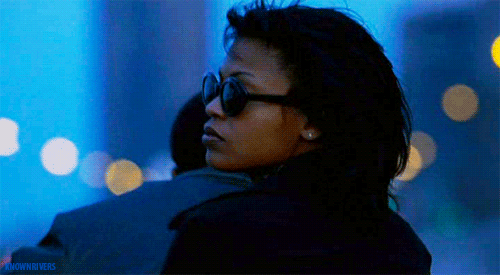
“I'm the blues in your left thigh... trying to become the funk in your right.” In this cult favorite, Darius and Nina’s relationship unfolds in the heart of Chicago’s spoken-word scene. Their on-and-off romance explores themes of love, trust, and vulnerability in an artistically vibrant way. With its soulful soundtrack and poetic dialogue, Love Jones remains a touchstone for Black romantic cinema.
6.Think Like a Man (2012)
Based on Steve Harvey’s book, this ensemble comedy follows four couples whose love lives get upended when the women try to outsmart the men using Harvey's dating advice. The film’s witty dialogue and relatable characters make it a fun exploration of modern relationships. Its star-studded cast, featuring stars like Michael Ealy, Kevin Hart, and Taraji P. Henson, is a highlight.
7.Boomerang (1992)
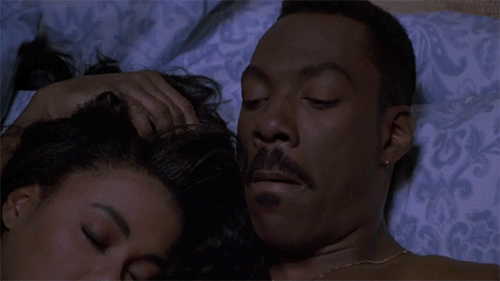
This rom-com stars Eddie Murphy as a suave ad exec whose womanizing ways are challenged when he meets his match in Robin Givens. The film playfully addresses gender roles, power dynamics, and true love. With an iconic soundtrack and supporting roles by Halle Berry and Martin Lawrence, it’s a must-watch. This is one of the only films that had me like, “Damn, Eddie Murphy was actually fine!?”
8.Beyond the Lights (2014)
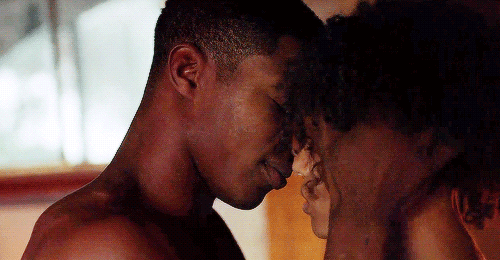
Pop star Noni and police officer Kaz come from two very different worlds but connect over their search for identity and purpose. This movie dives into the pressures of fame, mental health, and self-worth, set against a beautifully shot romance. Gugu Mbatha-Raw’s performance as Noni is utterly captivating.
9.Just Wright (2010)
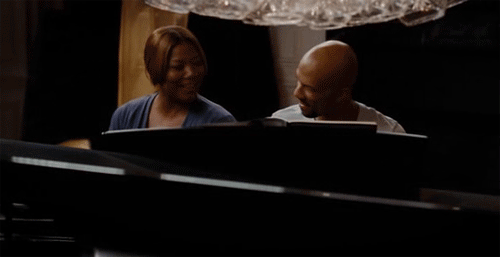
Queen Latifah stars as a physical therapist who falls for her NBA client (Common), only to realize he's infatuated with her friend. This charming movie combines themes of self-confidence, unrequited love, and second chances. It’s a feel-good story with a refreshing message about inner beauty.
10.Jason's Lyric (1994)
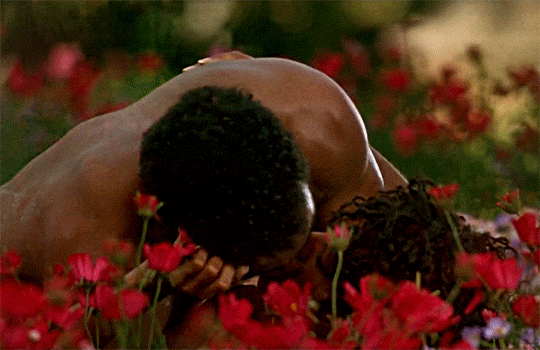
Set in Houston, this intense love story between Jason and Lyric offers a poetic take on love amidst the trauma and violence of their pasts. It’s a powerful tale of hope and healing, underscored by a fantastic soundtrack. Jada Pinkett Smith and Allen Payne bring raw emotion to their roles.
11.The Photograph (2020)
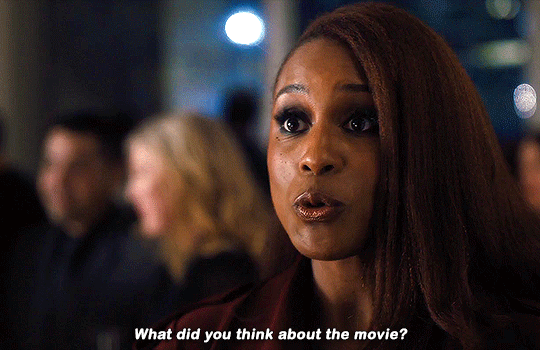
Mae, a museum curator, unravels her mother's love story while grappling with her feelings for journalist Michael. This movie elegantly contrasts generational love stories, exploring how family history impacts our romantic choices. With Issa Rae and LaKeith Stanfield, it’s an intimate, visually stunning journey.
12.Waiting to Exhale (1995)
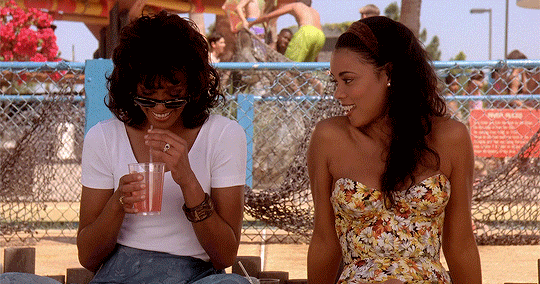
Four friends navigate love, heartbreak, and betrayal in this classic adaptation of Terry McMillan's novel. The movie, starring Angela Bassett and Whitney Houston, resonates with audiences for its honest depiction of complex relationships. It’s a celebration of friendship and resilience amid romantic ups and downs.
13.Sylvie’s Love (2020)
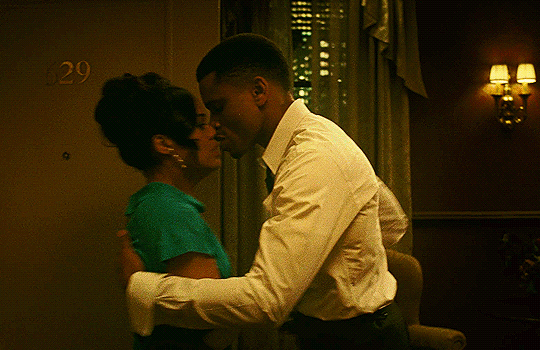
Set in 1950s Harlem, this visually lush romance follows Sylvie and Robert, who connect over a love of jazz but face challenges due to societal pressures. Their love story captures the nostalgic elegance of old Hollywood cinema while addressing race and ambition. Tessa Thompson and Nnamdi Asomugha deliver memorable performances.
14.How Stella Got Her Groove Back (1998)
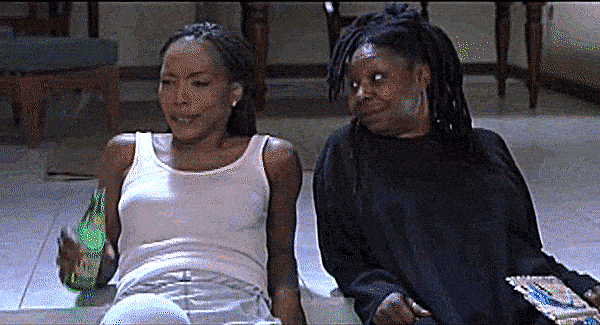
Stella, a successful businesswoman, finds romance with a younger man while on vacation in Jamaica, rediscovering herself in the process. This film is a lighthearted yet empowering take on self-love and embracing change. Angela Bassett’s chemistry with Taye Diggs makes it unforgettable.
15.The Wood (1999)
This nostalgic film weaves between the past and present as three childhood friends reflect on their lives and loves before one of them gets married. Set in Inglewood, California, it’s a heartwarming story about friendship, first love, and coming of age. With plenty of humor and sentiment, it’s relatable and timeless.
16.Two Can Play That Game (2001)
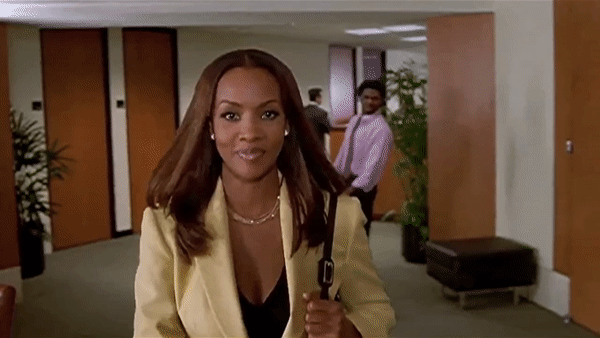
Vivica A. Fox stars as a confident woman who devises a plan to keep her boyfriend (Morris Chestnut) in check, but her scheme quickly backfires. This film humorously explores gender dynamics and dating games, with clever insights into relationships. It’s a playful reminder that love doesn’t follow a script.
17.Moonlight (2016)
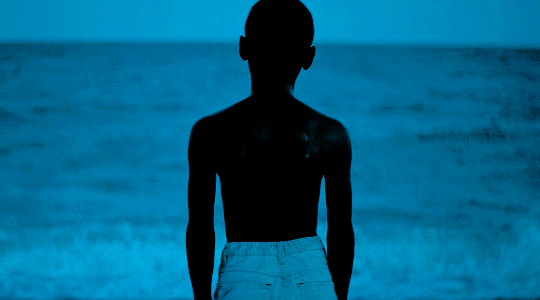
This Oscar-winning film follows Chiron's journey of self-discovery and his struggle to understand his sexuality and identity. Though not a traditional romance, Moonlight deeply explores love, identity, and acceptance in powerful, poetic ways. It’s visually and emotionally stunning, resonating with audiences worldwide.
18.Something New (2006)
This romantic comedy explores love across racial boundaries, as high-powered Black lawyer Kenya finds herself unexpectedly falling for her white gardener. It’s a thoughtful exploration of love, race, and societal expectations. Sanaa Lathan and Simon Baker’s chemistry makes it both charming and impactful.
19.Deliver Us from Eva (2003)
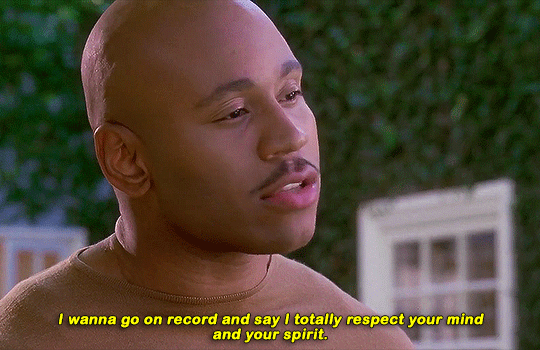
Eva’s controlling nature makes her sisters’ boyfriends hire a man to distract her, only for him to fall in love with her. This rom-com is full of humor and charm, exploring love’s unpredictability. Gabrielle Union shines as the headstrong, no-nonsense Eva, with LL Cool J adding warmth as her love interest.
20.Hitch (2005)
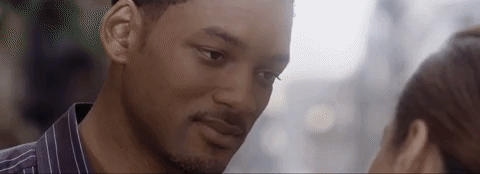
Hitch, a film starring Will Smith, portrays Black men as romantic partners, challenging stereotypes. It explores interracial relationships and contributes to a diverse representation of Black love in mainstream cinema. It’s one of those movies you can watch over and over because it’s hilarious and authentic. The storytelling is just too good.
Let’s make things inbox official! Sign up for the xoNecole newsletter for love, wellness, career, and exclusive content delivered straight to your inbox.
Featured image Waiting to Exhale/Gif
Exclusive: Viral It Girl Kayla Nicole Is Reclaiming The Mic—And The Narrative
It’s nice to have a podcast when you’re constantly trending online. One week after setting timelines ablaze on Halloween, Kayla Nicole released an episode of her Dear Media pop culture podcast, The Pre-Game, where she took listeners behind the scenes of her viral costume.
The 34-year-old had been torn between dressing up as Beyoncé or Toni Braxton, she says in the episode. She couldn’t decide which version of Bey she’d be, though. Two days before the holiday, she locked in her choice, filming a short recreation of Braxton’s “He Wasn’t Man Enough for Me” music video that has since garnered nearly 6.5M views on TikTok.
Kayla Nicole says she wore a dress that was once worn by Braxton herself for the Halloween costume. “It’s not a secret Toni is more on the petite side. I’m obsessed with all 5’2” of her,” she tells xoNecole via email. “But I’m 5’10'' and not missing any meals, honey, so to my surprise, when I got the dress and it actually fit, I knew it was destiny.”
The episode was the perfect way for the multihyphenate to take control of her own narrative. By addressing the viral moment on her own platform, she was able to stir the conversation and keep the focus on her adoration for Braxton, an artist she says she grew up listening to and who still makes her most-played playlist every year. Elsewhere, she likely would’ve received questions about whether or not the costume was a subliminal aimed at her ex-boyfriend and his pop star fiancée. “I think that people will try to project their own narratives, right?” she said, hinting at this in the episode. “But, for me personally – I think it’s very important to say this in this moment – I’m not in the business of tearing other women down. I’m in the business of celebrating them.”
Kayla Nicole is among xoNecole’s It Girl 100 Class of 2025, powered by SheaMoisture, recognized in the Viral Voices category for her work in media and the trends she sets on our timelines, all while prioritizing her own mental and physical health. As she puts it: “Yes, I’m curating conversations on my podcast The Pre-Game, and cultivating community with my wellness brand Tribe Therepē.”
Despite being the frequent topic of conversation online, Kayla Nicole says she’s learning to take advantage of her growing social media platform without becoming consumed by it. “I refuse to let the internet consume me. It’s supposed to be a resource and tool for connection, so if it becomes anything beyond that I will log out,” she says.
On The Pre-Game, which launched earlier this year, she has positioned herself as listeners “homegirl.” “There’s definitely a delicate dance between being genuine and oversharing, and I’ve had to learn that the hard way. Now I share from a place of reflection, not reaction,” she says. “If it can help someone feel seen or less alone, I’ll talk about it within reason. But I’ve certainly learned to protect parts of my life that I cherish most. I share what serves connection but doesn’t cost me peace.
"I refuse to let the internet consume me. It’s supposed to be a resource and tool for connection, so if it becomes anything beyond that I will log out."

Credit: Malcolm Roberson
Throughout each episode, she sips a cocktail and addresses trending topics (even when they involve herself). It’s a platform the Pepperdine University alumnus has been preparing to have since she graduated with a degree in broadcast journalism, with a concentration in political science.
“I just knew I was going to end up on a local news network at the head anchor table, breaking high speed chases, and tossing it to the weather girl,” she says. Instead, she ended up working as an assistant at TMZ before covering sports as a freelance reporter. (She’s said she didn’t work for ESPN, despite previous reports saying otherwise.) The Pre-Game combines her love for pop culture and sports in a way that once felt inaccessible to her in traditional media.
She’s not just a podcaster, though. When she’s not behind the mic, taking acting classes or making her New York Fashion Week debut, Kayla Nicole is also busy elevating her wellness brand Tribe Therepē, where she shares her workouts and the workout equipment that helps her look chic while staying fit. She says the brand will add apparel to its line up in early 2026.
“Tribe Therepē has evolved into exactly what I have always envisioned. A community of women who care about being fit not just for the aesthetic, but for their mental and emotional well-being too. It’s grounded. It’s feminine. It’s strong,” she says. “And honestly, it's a reflection of where I am in my life right now. I feel so damn good - mentally, emotionally, and physically. And I am grateful to be in a space where I can pour that love and light back into the community that continues to pour into me.”
Tap into the full It Girl 100 Class of 2025 and meet all the women changing game this year and beyond. See the full list here.
Featured image by Malcolm Roberson
If there is one thing that I am going to do, it’s buy myself some scented soy candles. And, as I was looking at a display of them in a TJ Maxx store a couple of weekends ago, I found myself wondering just who decided which scents were considered to be “holiday” ones. The origin stories are actually pretty layered, so, for now, I’ll just share a few of ‘em.
I’m sure it’s pretty obvious that pine comes from the smell of fresh Christmas trees; however, scents like cloves, oranges, and cinnamon are attributed to two things: being natural ways to get well during the cold and flu season, and also being flavors that are used in many traditional holiday meals.
Meanwhile, frankincense and myrrh originate from the Middle East and Africa (you know, like the Bible does — some folks need to be reminded of that—eh hem — Trumpers) and ginger? It too helps with indigestion (which can definitely creep up at Thanksgiving and Christmas dinner tables); plus, it’s a key ingredient for ginger snaps and gingerbread houses. So, as you can see, holiday-themed scents have a rhyme and reason to them.
Tying this all in together — several years ago, I penned an article for the platform entitled, “Are You Ready To Have Some Very Merry ‘Christmas Sex’?” Well, in the spirit of revisiting some of that content, with a bit of a twist, I decided to broach some traditional holiday scents from the perspective of which ones will do your libido a ton of good from now through New Year’s Eve (check out “Make This Your Best NYE. For Sex. EVER.”).
Are you ready to check some of them out, so that, whether it’s via a candle, a diffuser, some essential oil, or some DIY body cream (check out “How To Incorporate All Five Senses To Have The Best Sex Ever”), you can bring some extra festive ambiance into your own boudoir? Excellent.
1. Vanilla
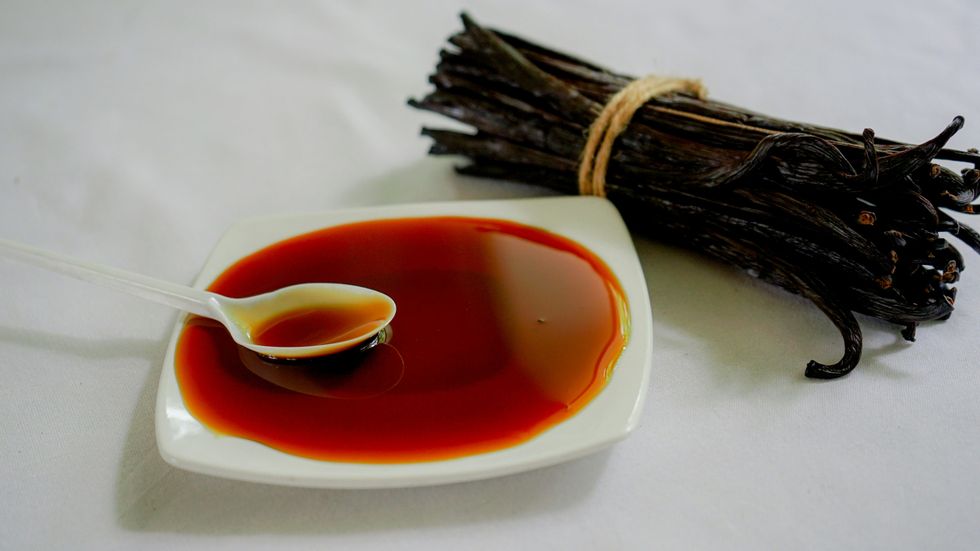
Unsplash
When it comes to holiday desserts, you’re going to be hard-pressed to find recipes that don’t include vanilla — and that alone explains why it is considered to be a traditional holiday scent. As far as your libido goes, vanilla is absolutely considered to be an aphrodisiac — partly because its sweet scent is considered to be very sensual. Some studies even reveal that vanillin (the active ingredient in vanilla) is able to increase sexual arousal and improve erectile dysfunction in men. So, if you adore the smell, here is more incentive to use it.
2. Frankincense
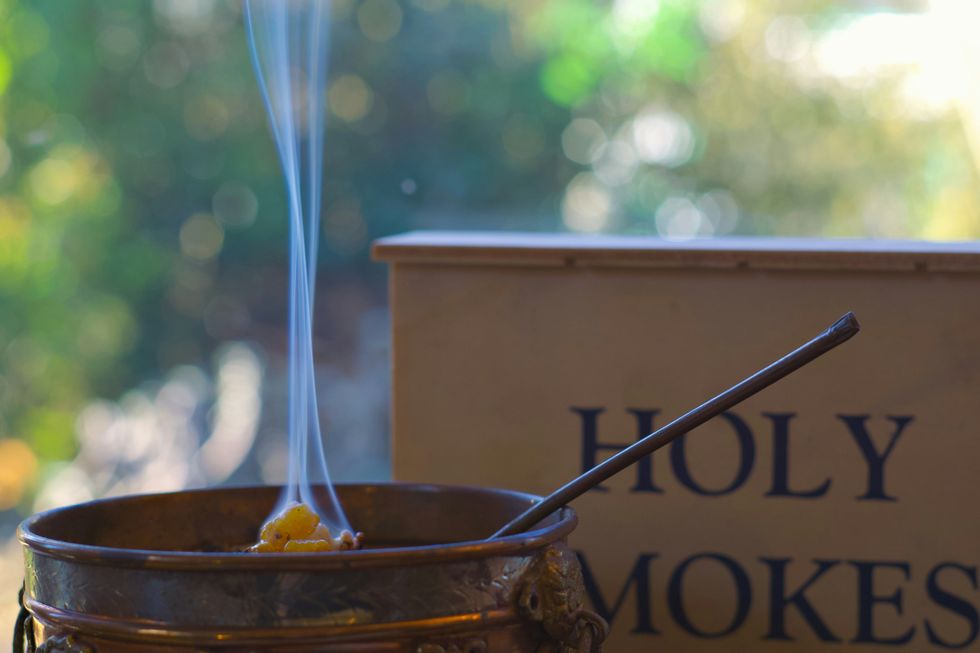
Unsplash
Although, typically, when people think about frankincense (and myrrh), it’s in the context of the gifts that the wise men brought Christ after he was born; it’s a part of the biblical Christmas story. However, frankincense goes much deeper than that. Sexually, since it has an earthy and spicy scent, some people like to use it to meditate (check out “What Exactly Is 'Orgasmic Meditation'?”). Also, since it has the ability to put you in a better mood, soothe and soften your skin and maintain your oral health — with the help of frankincense, every touch and kiss can be that much…sexier.
3. Cinnamon
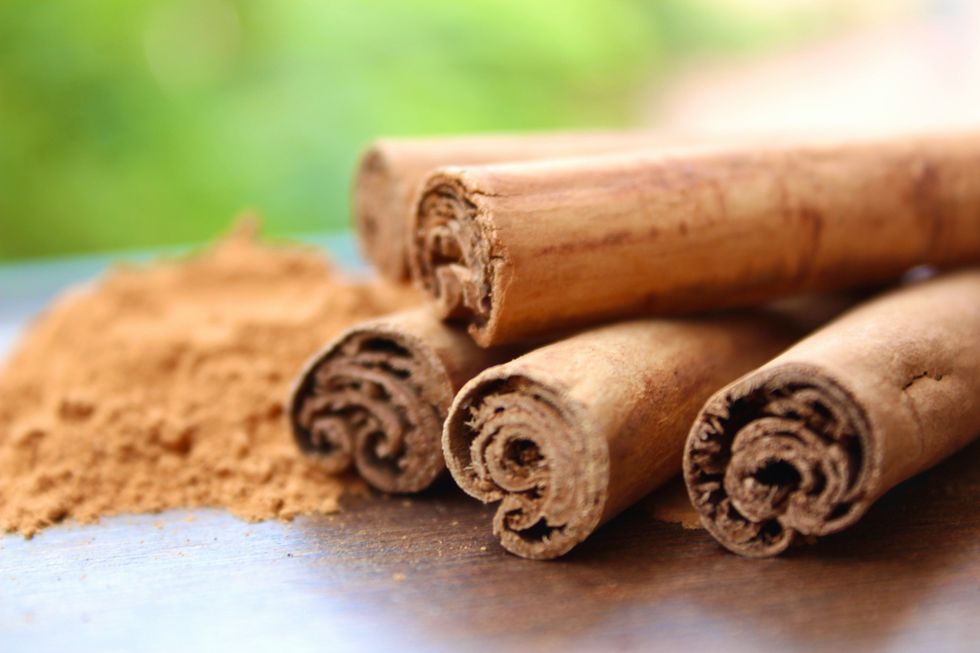
Unsplash
I already gave cinnamon a shout-out in the intro. Personally, I’ve been a fan of it, in the sex department, for a long time now (check out “12 ‘Sex Condiments’ That Can Make Coitus Even More...Delicious”). When it’s in oil form, it can be very sweet to the taste while sending a warm sensation throughout the body — which is why the giver and receiver of oral sex can benefit from its usage. Beyond that, cinnamon helps to increase blood flow to your genital region, elevate sexual desire and, some studies say that it can even help improve fertility. Beautiful.
4. Peppermint
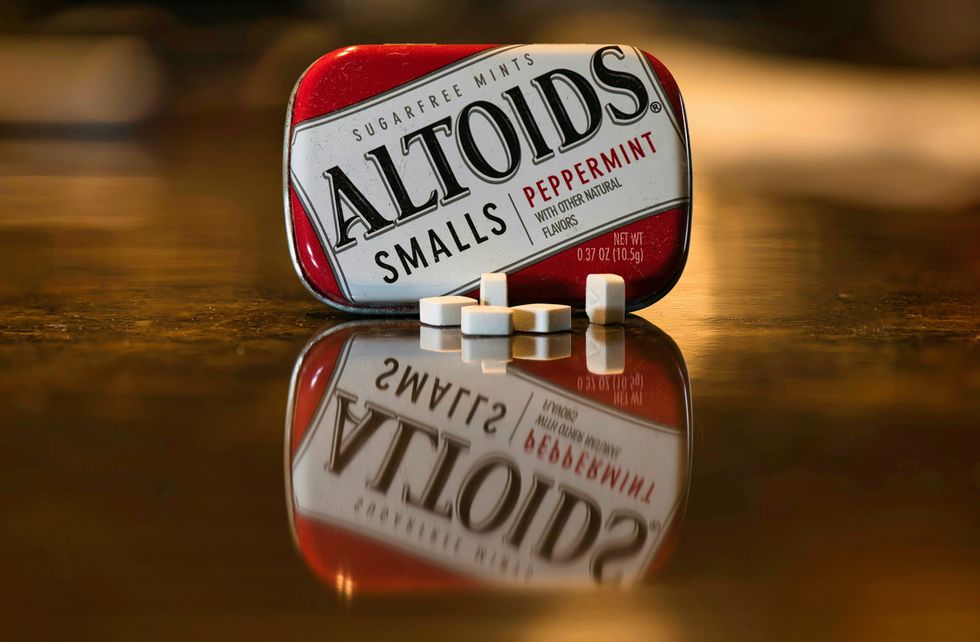
Unsplash
If there’s a signature candy for the holiday season, it’s probably a candy cane — which automatically puts peppermint in the running for being an official holiday scent. Pretty much, in any form, it’s got your sex life’s back because it’s hailed as being a sexual stimulant; in part, because its smell is so invigorating. Plus, it helps to (eh hem) ease headaches, it gives you more energy and it can definitely help to freshen your breath. Also, that minty sensation? The same thing that I said about cinnamon can apply to peppermint too (if you catch my drift).
5. Ginger
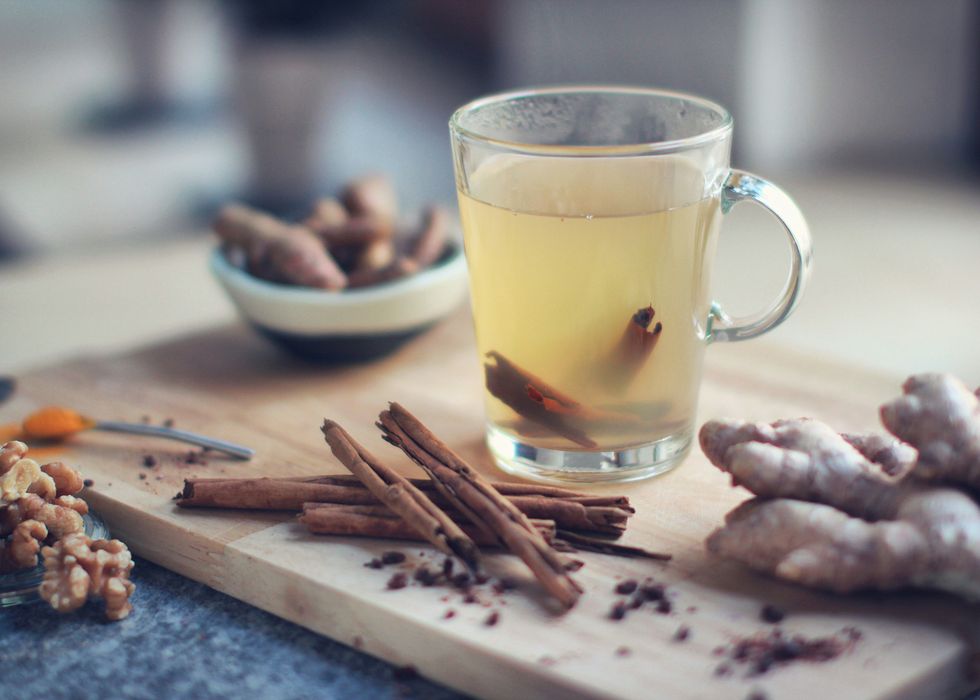
Unsplash
Whether it’s in a meal or in your bedroom, ginger is going to produce results that are hella spicy. On the sex tip, science has praised ginger for being able to increase sexual arousal, improve blood circulation (which intensifies orgasms) and strengthen fertility for many years. Scent-wise, I find it to be one that both men and women enjoy because it is both woodsy and sweet. So, if you’ve got some massage oil in mind, adding some ginger is a way to please you both.
6. Pomegranate
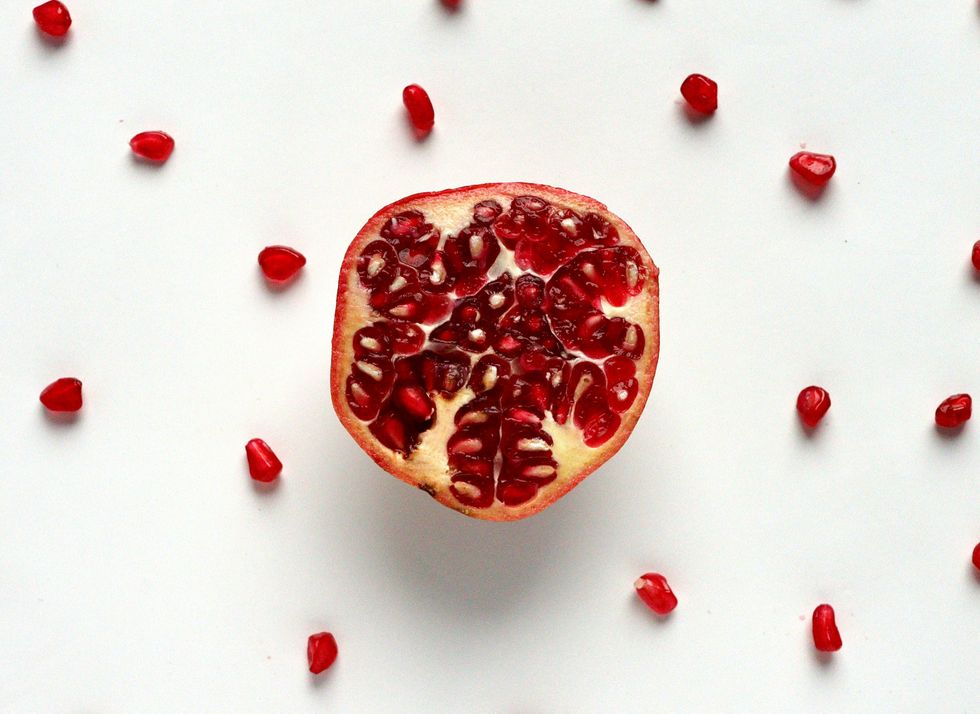
Unsplash
September through December is the time of year when pomegranates are considered to be in season. And, as someone who is a Rosh Hashanah observer, I have a personal adoration for them because I am aware of the various things that they symbolize in Hebrew culture including the fact that they are a fruit that represents love and fertility. So yeah, they would absolutely be an aphrodisiac — one that is perfect for this time of the year. While consuming it helps to boost testosterone levels in both men and women, the floral bittersweet smell that it produces can help to reduce stress while promoting relaxation (like most floral scents do) — and the more relaxed you are, the easier it is to climax.
7. Nutmeg
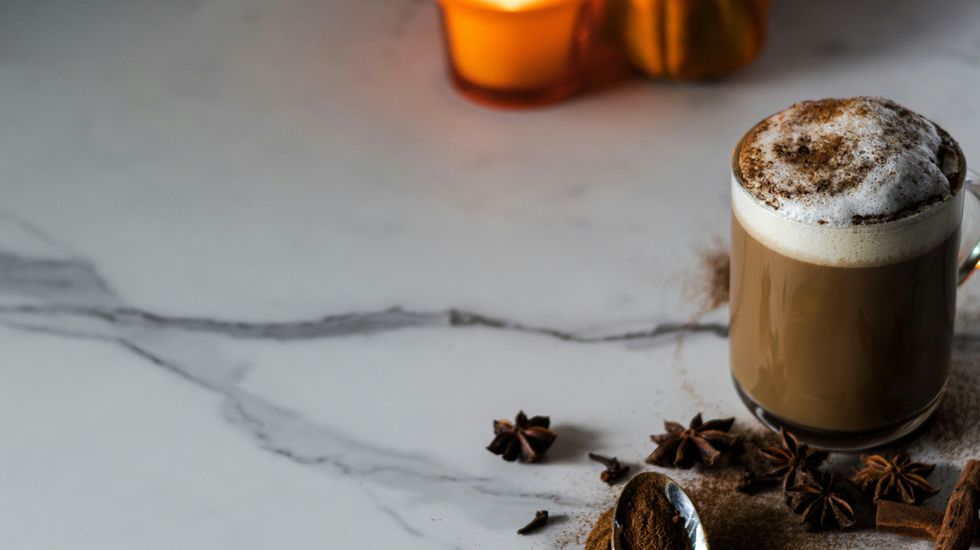
Unsplash
Another signature seasoning during the holiday season is nutmeg. It’s perfect in Thanksgiving sweet potato (or pumpkin) pie and Christmas morning French toast. And yes, it can also make your sex life better. If you consume it, it can intensify your libido and, overall, its warm-meets-spicy-meets-sweet smell is so inviting that it is considered to be a pretty seductive scent.
8. Cloves
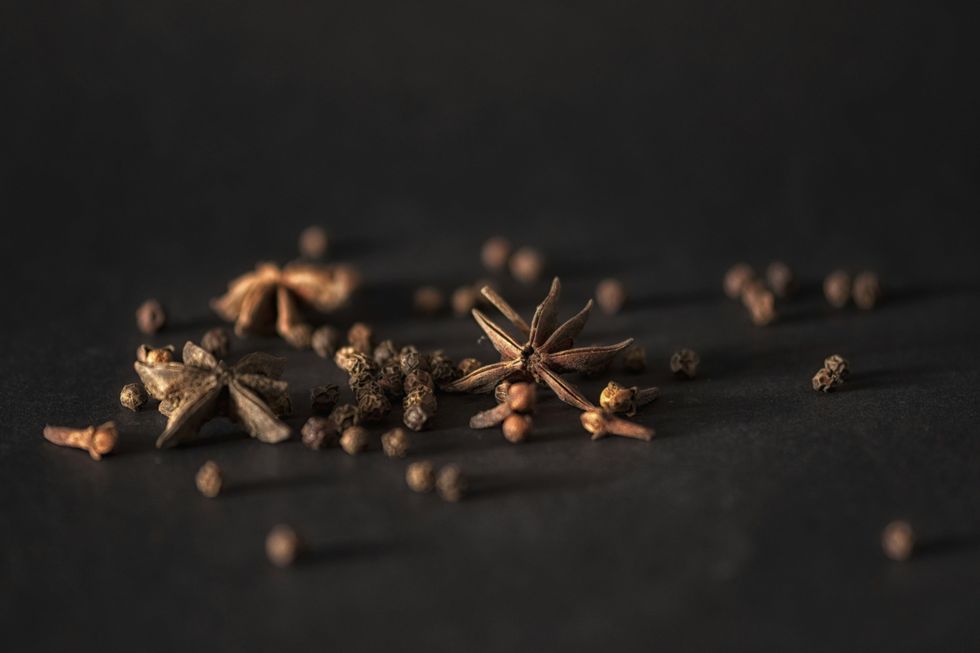
Unsplash
I ain’t got not one lie to tell you — if you’ve got a toothache, put some clove oil on that bad boy and send me a Christmas present for putting you on game. Aside from that, as I round all of this out, cloves are another holiday scent that can do wonders for your sex life. For men, it has the ability to significantly increase sexual arousal and improve stamina and endurance. For men and women alike, it also has a reputation for strengthening sexual desire. And for women solely? Well, if you want an all-natural way to increase natural lubrication down below — the scent and and feel (in DILUTED oil form) can make that happen. It can make the holidays especially special…if you know what I mean.
Ah yes — the atmosphere of the holidays and what it can do.
Take it all in! Scent ‘n whatever stimulating that comes with it! #wink
Let’s make things inbox official! Sign up for the xoNecole newsletter for love, wellness, career, and exclusive content delivered straight to your inbox.
Featured image by Giphy



